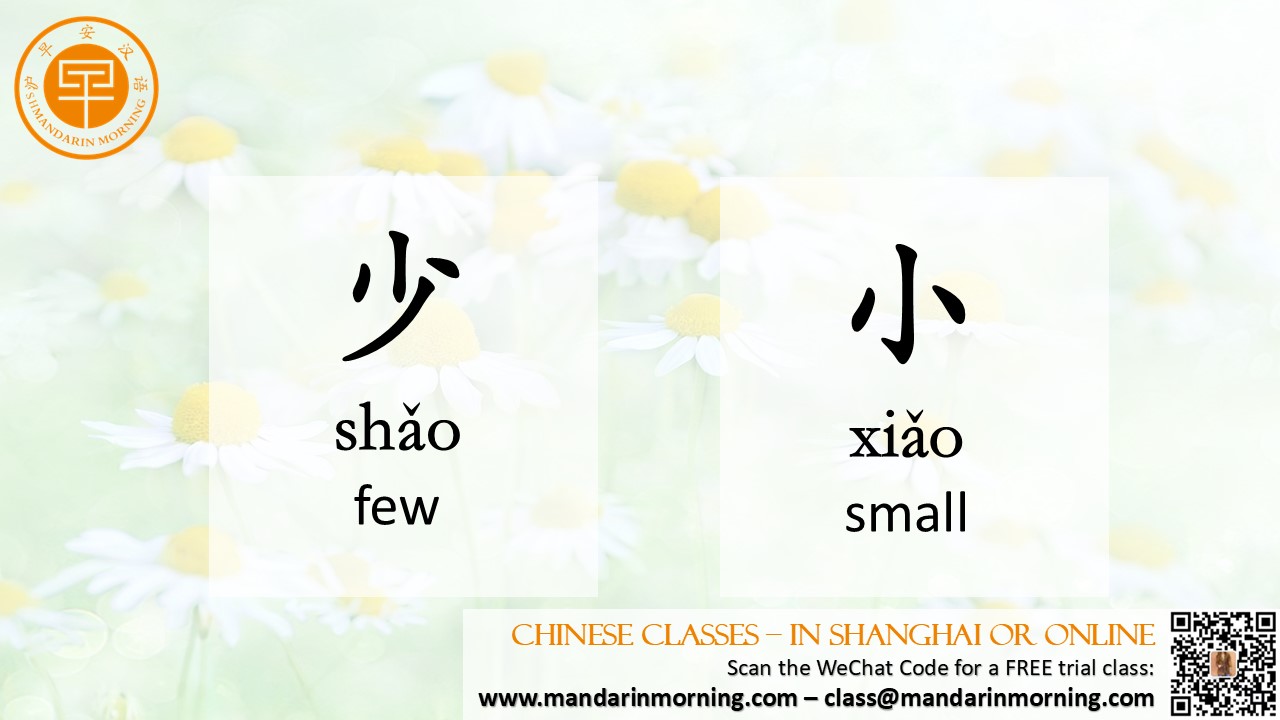| The difference between 少 (shǎo) and 小 (xiǎo) is an interesting one Mandarin Chinese language students. The Chinese Hanzi characters look alike and the meaning is also similar. Both these Chinese words can mean ‘little’, but the difference between them can be summed up easily: 小xiǎo is used to describe the size of something very little (small). 少shǎo is used to describe the quantity of something as little (few).  Examples of 小xiǎo (small) in Chinese It can be used as an adverb or adjective: 效果不小 (xiàoguǒ bù xiǎo) - The effect isn’t small 小房子 (xiǎo fángzi) - Small house 小熊猫 (xiǎo xióngmāo) - Red panda (but the literal translation is ‘Little Panda’) Usage of 少Shǎo (few) in Mandarin In comparison as an adjective: 这里的树比我老家少 (zhèlǐ de shù bǐ wǒ lǎojiā shǎo) - There are fewer trees here than in my hometown In a sentence as an adverb: 我只有很少的钱 (wǒ zhǐyǒu hěn shǎo de qián) - I have only little money The difference between 少Shǎo and 小xiǎo Look at these two Chinese language sentences: 北京的外国人更少 (Běijīng de wàiguó rén gèng shǎo) 北京的外国人更小 (Běijīng de wàiguó rén gèng xiǎo) Both these Chinese language sentences are technically correct, but the second one is highly weird. The first one would indicate Beijing doesn’t have a lot of foreigners (for instance, compared to Shanghai), while the second one says foreigners in Beijing are smaller (in terms of body height). Here’s another example: 我的猫很小 (Wǒ de māo hěn xiǎo) 这边儿的猫很少 (Zhèbiānr de māo hěn shǎo) The first one means ‘My cat is very small’, and the second one means ’There are few cats here’. |